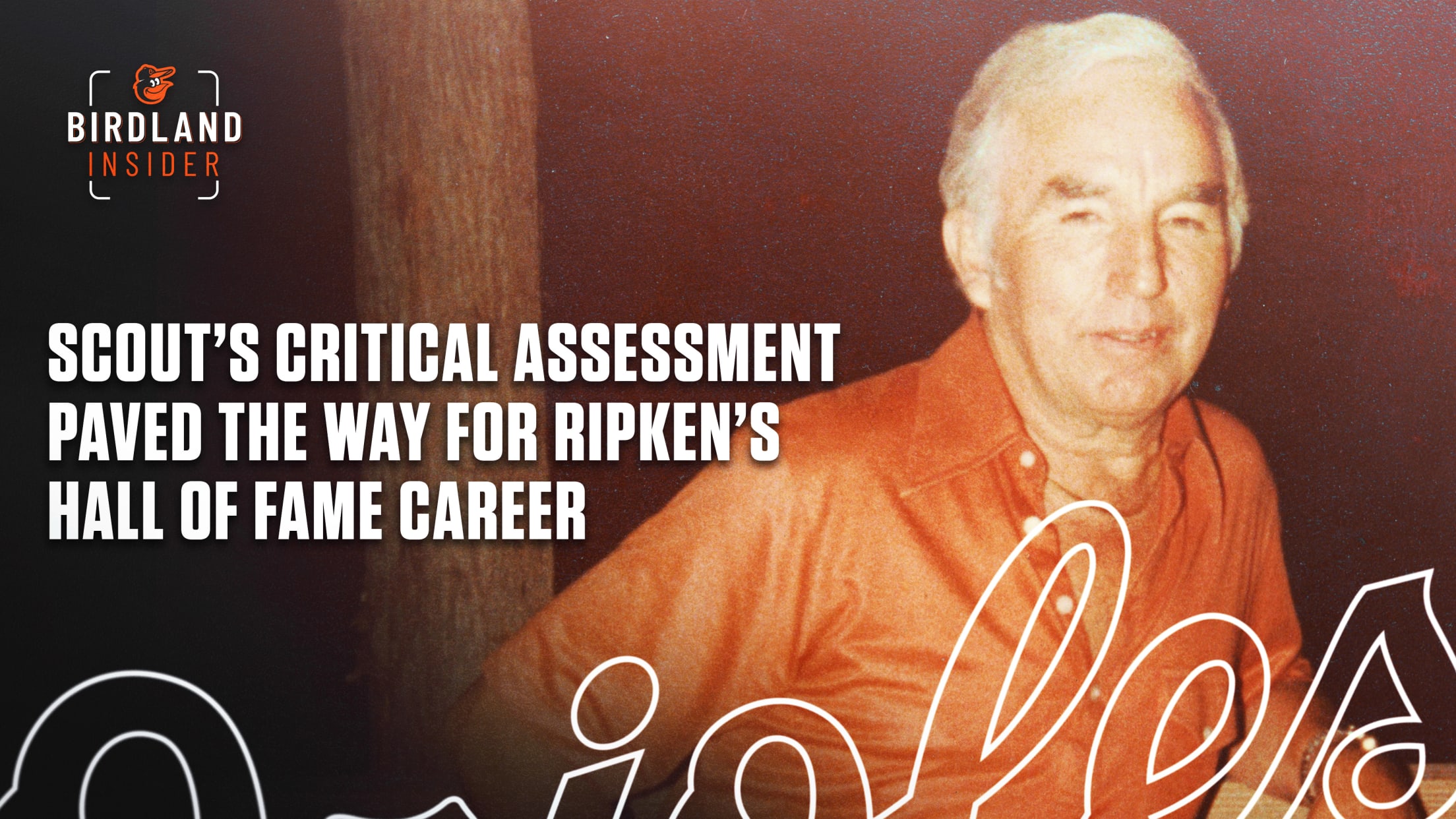
Scout's Critical Assessment Paved The Way For Ripken's Hall of Fame Career
Most of the scouts who came to see Aberdeen High School*s games in the late 1970s only came on days when Cal Ripken Jr. was pitching.
Not Dick Bowie. The Orioles Mid-Atlantic supervisor was there when Ripken pitched, but he was often the only scout in the stands when the tall youngster was playing shortstop. When the 1978 amateur draft rolled around in June and the Orioles selected Ripken in the second round, it was Bowie*s view that he should start out as an infielder. Pitching would be a fall back, in case Ripken didn*t hit.
We all know the rest of the story.
Projecting Ripken as an infielder was just one of the marks of Dick Bowie*s fine judgment as a scout. Other teams projected Ripken as a mid-to-late round pick as a pitcher; even Orioles scouting director Tom Giordano liked the son of long-time Orioles coach Cal Ripken Sr. as a pitcher first.
The late Jim Gilbert, who succeeded Bowie as Mid-Atlantic supervisor, once said: ※I think Dick Bowie*s decision in knowing what to do with Cal was one of the best pieces of scouting I have ever seen. Later, Orioles manager Earl Weaver also agreed Cal belonged at shortstop.§
Bowie never got to see Ripken past his first month in the big leagues. He died of a heart attack at age 57 on August 31, 1981. But his impact on the Orioles organization had already been felt.
He also signed outfielder Larry Sheets 每 ironically, drafted in the second round ahead of Ripken 每 as well as future big leaguers Ken Dixon and Jesse Jefferson, and assisted in the signing of many others, including catcher Larry Haney and pitcher Gene Brabender. In all, he signed more than 100 players who played professional baseball.
But perhaps Bowie*s biggest ※find§ was a college basketball player at Virginia State. Al Bumbry played only one year of college baseball, but went on to win American League Rookie of the Year honors and spend 14 seasons as a big league outfielder and be inducted into the Orioles Hall of Fame in 1987.
※I played for Dick for two summers in the Shenandoah Valley League, but I was a basketball player 每 I never had aspirations to play pro baseball,§ Bumbry said. ※But he believed I would be a big league player. I wasn*t going to sign but he said, &I*d hate for you to wake up one day and say I wished I*d signed. The rest is history. He was very possessive of me.§
So possessive, Bumbry said, that he was one of two players 每 Jesse Jefferson being the other 每 that Bowie named a pair of his rabbit-hunting dogs after.
Bowie had played and managed in semi-pro ball around his hometown of Fredericksburg, VA, and drove a milk truck before taking an associate scout position with the Orioles in 1958. Back then, they were called ※bird dogs,§ working for little to no money unless a player they suggested was signed by the team. They received a small bonus every time one of their signees advanced in the farm system or up to the majors. So he continued driving the milk truck in the morning and driving to high school, college and summer league games in the afternoons and evenings, sending in reports on hundreds of players each year.
Bowie*s keen eye finally enabled him to give up the dairy job when the Orioles made him a full-time scout in 1968. In 1979, he was promoted to regional supervisor.
He lived in Fredericksburg until 1980, when he moved to Hagerstown, MD. He died at his home there barely a year later. In 1990, he was posthumously named to the first induction class of the Mid-Atlantic Scouts Hall of Fame. This year, he joins the Orioles Hall of Fame as the winner of the Heb Armstrong Award for non-uniformed personnel.


